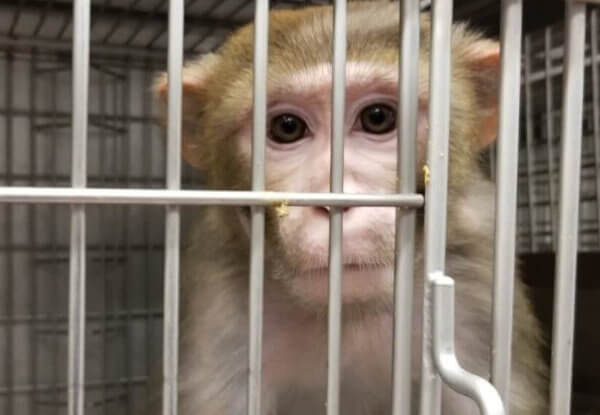PETA Asks Ajinomoto to Stop Cutting Up Dogs for Pointless Tests at Shareholders Meeting
PETA attended Ajinomoto’s annual meeting of shareholders today to urge the company to ban crude tests on animals. As the world’s largest manufacturer of monosodium glutamate (MSG) and the owner of packaged frozen-food brands Tai Pei, Ling Ling, and José Olé, Ajinomoto has been tormenting thousands of dogs, fish, gerbils, guinea pigs, mice, pigs, rabbits, and rats in horrific and deadly experiments since the 1950s.
The company’s experimenters have cut open dogs’ stomachs, inserted tubes into them, starved them, fed them MSG, taken their stomach fluid, and injected them with drugs, purportedly to establish health claims for marketing its food products and ingredients. Some of its other tests involved inserting tubes into day-old piglets’ arteries and starving them, electroshocking rats, and compelling mice to fight each other. These tests are neither relevant to human health nor required by law.
Ajinomoto has ignored numerous attempts by PETA U.S. to discuss ending worthless animal testing using its ingredients. That’s why PETA U.S. purchased stock in the company last year to urge shareholders to end the experiments on animals.
In April 2021, Ajinomoto released an updated animal-testing policy purportedly to improve animal welfare practices. However, this new policy would allow for the continuation of nearly all the same gruesome tests on animals that the company has been conducting and funding for decades. Most of its animal experiments are curiosity-driven or used for generating dubious health-marketing claims for its products, and Ajinomoto isn’t complying with its “3Rs” policy (replace, reduce, and refine the use of animals in experiments)—because animal-free testing methods are already available for these purposes and it’s not taking advantage of them.
Urge Ajinomoto to End Horrific Tests on Animals
Please join PETA in calling on Ajinomoto to join dozens of other global food giants that have ended animal tests by switching to more effective, ethical, and economical non-animal research.









